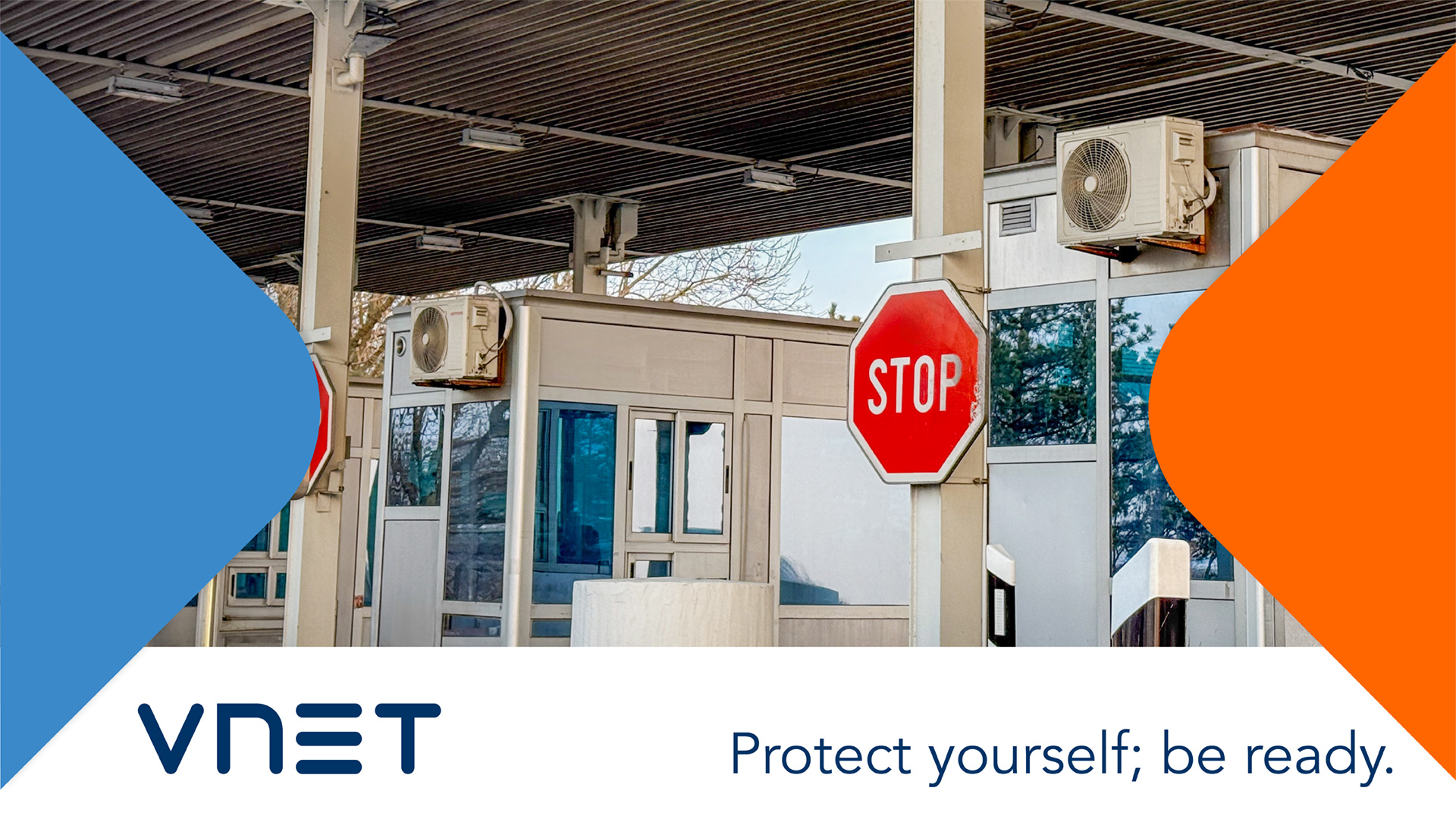Traveling Soon? Here’s How to Stay Secure on the Go
Whether you’re planning a weekend getaway to Niagara Falls or an extended trip abroad, traveling opens up a world of opportunity and, unfortunately, a world of digital risk.
As spring and summer travel picks up, VNET wants to help you stay one step ahead of potential cybersecurity threats. From airports to international borders, your devices — and the sensitive data on them — may be more vulnerable than you think.
In a recent travel advisory, the Canadian government cautioned travelers that U.S. border agents have the authority to search travelers without providing a reason. In 2024, U.S. Customs and Border Protection conducted over 47,000 device searches, including smartphones, laptops, tablets, and even USB drives.
For travelers in Erie County, where crossing into Canada for a day trip to Niagara Falls or a weekend in Toronto is common, it’s important to understand the potential risks and how to safeguard your digital information. Here are some tips to secure your digital life while traveling:
1. Travel Light, Digitally
Before you head out, ask yourself: Do I really need this device or file on the trip?
When it comes to digital security, less is more. The fewer files you bring, the smaller your risk footprint becomes. Take a moment to declutter your digital baggage before you leave.
Start by identifying what’s truly necessary for your trip — maybe it’s just your smartphone and a laptop for work. Leave behind any non-essential gadgets like external drives, backup phones, or tablets that could become targets for theft or inspection.
Instead of storing everything locally, important files can be transferred to a secure cloud storage service or an encrypted hard drive kept safely at home. If you need access to files while you travel, consider using cloud platforms with multi-factor authentication enabled.
Think of it as packing your digital suitcase: Only bring what you need and leave the rest behind under lock and key.
2. Turn On Device Encryption
Encrypting your phone or laptop protects your data even if someone gets physical access to your device. Unlike a simple screen lock, encryption scrambles your information so it can’t be read without the proper credentials.
Check your device settings — most modern phones and computers offer built-in encryption, but it might need to be activated manually.
3. Power Down Before Checkpoints
If you anticipate crossing an international border, one of the simplest and most effective steps you can take to protect your data is to fully power down your devices before arriving at the checkpoint.
This becomes especially important at international borders, where laws about digital privacy can vary. In the U.S. and Canada, border agents have broad authority to inspect your electronic devices, sometimes without probable cause.
If you’re carrying multiple devices, it’s a good idea to shut them all down before reaching the inspection point. A device that is shut off and encrypted is significantly more secure than one that’s merely locked or in sleep mode.
It’s a simple step, but it can go a long way toward keeping your personal data safe and your privacy intact.
4. Know the Laws
Every country has its own rules about digital privacy and surveillance. Some may legally inspect your device or request access to your social media accounts. Others may have strict surveillance policies that allow them to monitor your online activity while you’re within their borders.
That’s why it’s important to do a little research before you travel. Understanding the digital privacy laws at your destination can help you better protect your sensitive information and ensure you’re ready to respond if your device is selected for inspection.
Start by visiting trusted resources like the Electronic Frontier Foundation (EFF) for traveler-specific guidance on digital rights. Many government websites also provide up-to-date travel advisories and legal information, including what customs and border officials can and cannot do with your data.
Understanding the legal landscape not only helps protect your privacy but also empowers you to make informed choices.
Stay Connected with VNET
If you have any questions or concerns about digital privacy or technology, our fast, friendly and local team is here to help. Access the Tech Support Help Portal to talk with our experts today.
For more tips on protecting your data and staying safe on the go, check out the full Tech Now segment on Safety & Security While Traveling. Tune in every other Wednesday at noon to Erie News Now to catch VNET’s Brian Marshall on Tech Now.
Stay up to date with all things tech by following Velocity Network on LinkedIn and Facebook. Join us on our exciting journey as we continue to expand our VNET Fiber network across Erie County.
